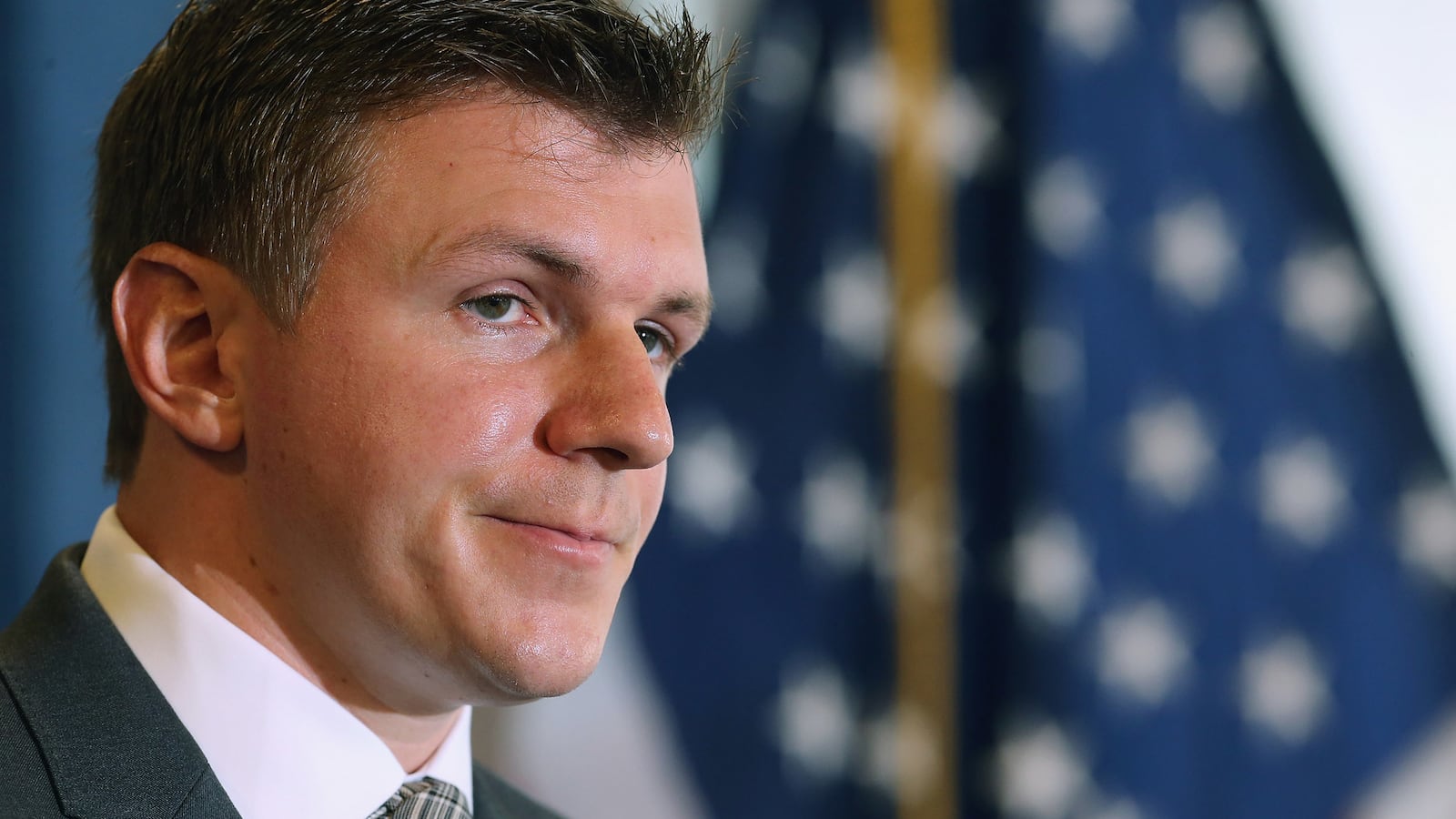On Wednesday, U.S. attorneys will begin prosecuting people arrested at President Donald Trump’s inauguration. Among the defendants is Dylan Petrohilos, whom prosecutors are trying to convict based on a podcast and a sting video by conservative provocateur James O’Keefe.
Petrohilos is one of nearly 200 people standing trial for their alleged participation in an anti-Trump protest, where some people broke windows and damaged vehicles. But an indictment portrays the incident as a riot, worthy of decades in prison for all alleged participants. Those defendants, some of whom go to trial on Wednesday, include journalists, peaceful protesters, and Petrohilos who says he wasn’t even in the area at the time of the protests. Prosecutors say Petrohilos’s alleged participation in the protest’s planning is enough to convict him.
Petrohilos says he wasn’t even at the protests. But he’s scheduled to go to trial in April 2018 with a group of defendants accused of organizing the anti-Trump march. Prosecutors’ first piece of evidence is a podcast.
On January 8, two anonymous, self-identified anarchists gave interviews for a podcast “that was broadcast on a known anarchist website,” a March search warrant for a police raid on Petrohilos’s home states.
“They took evidence about my politics and beliefs. I think they took anything that looked anti-Trump or specifically political,” Petrohilos told The Daily Beast of the raid. “The first thing they took was an antifascist flag that was a response to trump’s election. I don’t know when it became a controversial opinion that fascism needed to be opposed.”
One of the people on the podcast, which was uploaded by anarchist news site It’s Going Down, identified himself as “D”. Federal prosecutors say that’s Petrohilos. On the podcast, D spoke of plans for an Inauguration Day protest, as well as political activism and legal training in the run-up to the event. D spoke of making D.C. a “clusterfuck” on the day of Trump’s inauguration.
Planning a protest — even a clusterfuck of a protest — is legal, but when activists met in a D.C. church to plan their Inauguration Day rally, an undercover police officer and an undercover opponent to the protests were secretly in attendance. The opponent was conservative activist James O’Keefe, Petrohilos said.
O’Keefe filmed the meeting, during which Petrohilos and other organizers discussed legal tactics and march routes for the Inauguration Day protests. O’Keefe then turned the footage over to law enforcement.
Before the inauguration, O’Keefe’s company Project Veritas filmed protesters discussing letting off stinkbombs at the Deploraball, an Inauguration Day party for the alt-right. On its website, Veritas boasted of giving the footage to “the CIA, the Secret Service, and the DC Metro Police,” resulting in three arrests before the inauguration.
The right-wing militia the Oath Keepers also claimed to have worked with Project Veritas to bring down anti-Trump protesters. An Oath Keepers member secretly filmed a protest organization meeting, during which activists discussed holding a “queer dance party” outside Vice President Mike Pence’s home, The Daily Beast previously reported. The Oath Keepers then overlaid audio of that innocuous protest meeting with a slideshow of protesters marching in the street and damaging vehicles, and uploaded the video to YouTube. Federal prosecutors have since introduced that video and other far-right and dubiously sourced protest “compilation videos” as evidence against the defendants.
O’Keefe has previously been accused of editing his own videos in misleading ways, removing scenes that show key context, manipulating the order of events, or presenting footage with questionable framing.
But months after the Inauguration Day protests, where Petrohilos was not among the hundreds of people swept up in mass arrests, police cited O’Keefe’s video and the It’s Going Down podcast as reason to conduct a raid on Petrohilos’s home. Once inside, they started bagging anything that suggested Petrohilos’s political affiliation, he said.
Petrohilos was added to the docket of Trump opponents facing trial on riot charges, even though, by the prosecution’s own admission, it has no evidence that Petrohilos was even at the protests. Instead, Assistant U.S. Attorney Jennifer Kerkhoff argued, Petrohilos’s alleged appearance on the podcast and at the protest planning meeting implicated him in a conspiracy to riot.
“The state claimed that because there had to be planning to go on the podcast, and planning for very standard parts of protests, like medics and legal observers, that was evidence of a conspiracy,” Petrohilos said.
It’s Going Down has pushed back on the podcast’s role in the conspiracy case.
“Saying that coming on a podcast recorded for public consumption to talk about a public demonstration is evidence of conspiracy, is like saying that someone writing a column in High Times is proof that they are in a drug cartel,” an It’s Going Down staffer told The Real News. “The State is trying to make the case that anyone that attends a demonstration or protest is thus involved in a conspiracy.”
Trials for some J20 defendants begin Wednesday. (Petrohilos is being tried with a group scheduled to go to court April 2018.) Pre-trial hearings in recent weeks have seen seen defendants make some limited gains against what they describe as an overzealous prosecution. Earlier this month, a judge ruled downgraded two of the group’s felony riot charges to misdemeanors, because criminal statute does not even allow those counts to be tried as felonies. That brings defendants’ maximum sentences down from over 70 years in prison to just over 60 years in prison.
On November 9, a judge slightly narrowed a search warrant for the Facebook data of anti-Trump activists who are not defendants in the case. Previously, the DOJ had requested broad access to two activists’ Facebook accounts, and a Facebook page for Inauguration Day protests. The judge ruled that the DOJ can access data from the accounts, but that certain information, like the identities of people who contacted the activists’ accounts, must be withheld.





